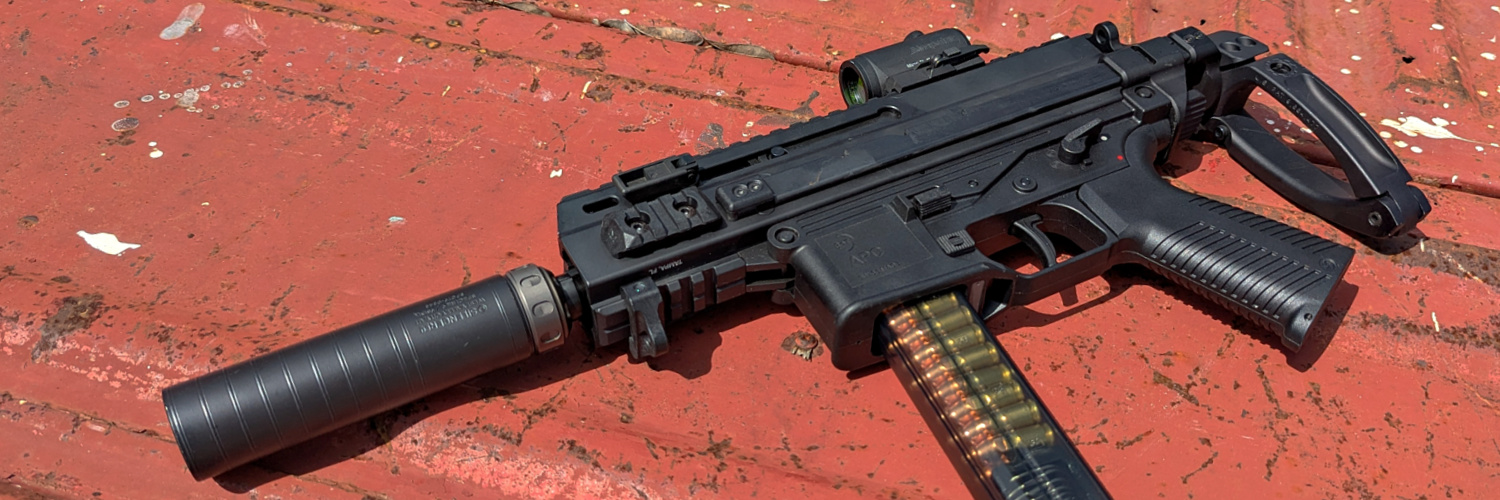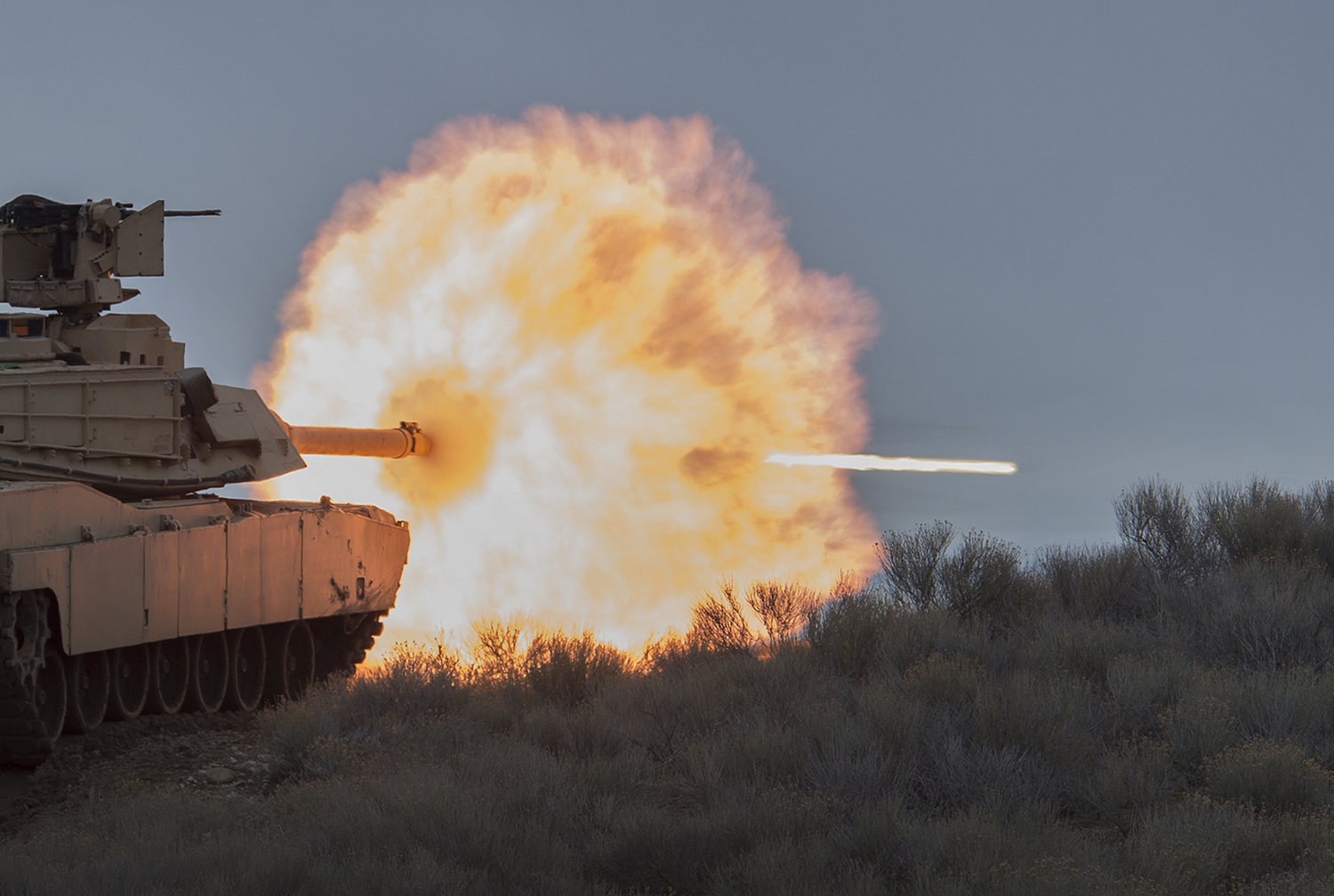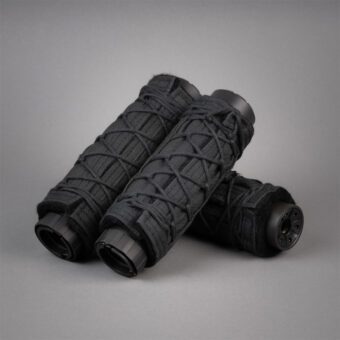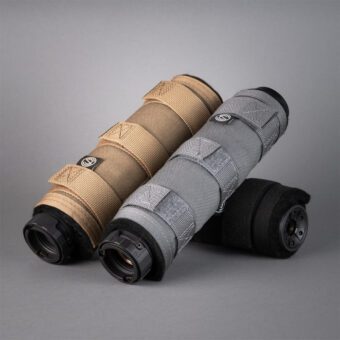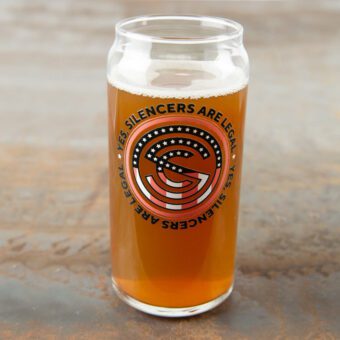Suppressors for Beginners: What You Need To Know Before Buying
Kat Ainsworth Stevens
Diving into the world of suppressors can be both exciting and overwhelming for beginners. These essential firearm accessories offer numerous benefits, from protecting your hearing to enhancing your shooting experience. Whether you’re looking to reduce noise at the range, improve communication during hunts, or simply enjoy quieter shooting sessions, understanding the basics of suppressors is crucial.
This guide will walk you through everything you need to know before making your first suppressor purchase, helping you navigate the process with confidence and ease.
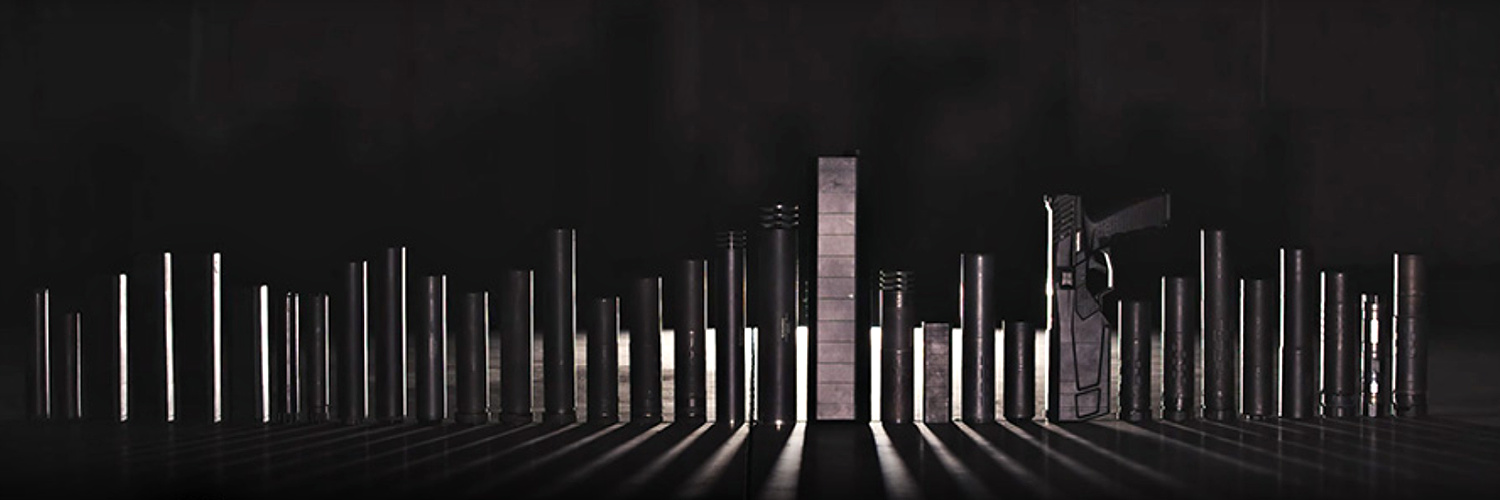
Understanding Suppressors: Basics and Terminology
A suppressor, commonly known as a silencer, is a device attached to or part of the barrel of a firearm to reduce the noise and muzzle flash generated by firing.
Knowing the correct terminology helps. Both “suppressor” and “silencer” are used interchangeably, and both are correct. However, “suppressor” is technically more accurate since these devices do not completely silence the shot but rather suppress the sound to safer levels.
The term “silencer” was originally used by Hiram Percy Maxim, who invented the device around 1902. Over time, “suppressor” became common because these devices don’t literally silence shots; they simply reduce the noise level.
You can use either term when talking to friends or qualified dealers, and you’ll be understood correctly.
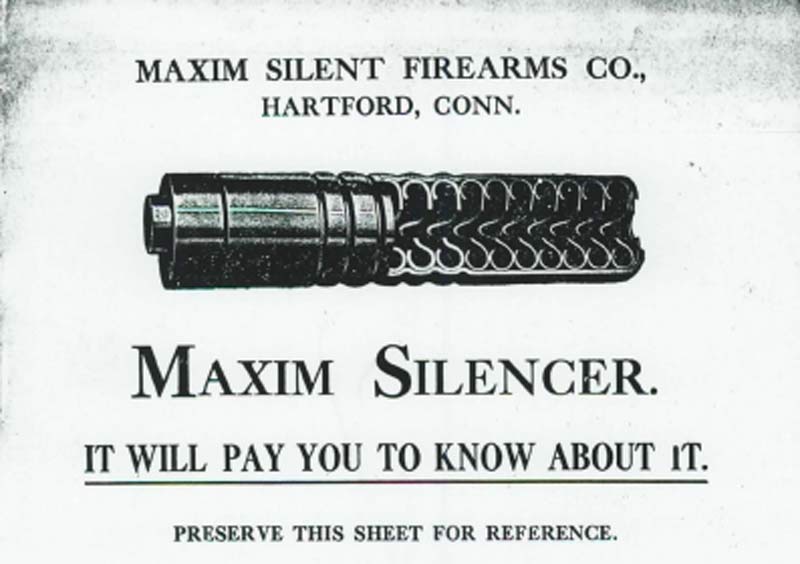
Legal Considerations and Regulations
Owning a suppressor requires navigating both federal and state regulations. Federally, the National Firearms Act (NFA) guidelines include filling out a Form 4 application, paying a $200 tax stamp fee, and undergoing a comprehensive background check. State laws can differ significantly — some states ban suppressors outright, while others have additional restrictions.
To legally acquire a suppressor, follow these steps:
- Selection and Purchase: Choose and pay for your suppressor. It will remain with the dealer until your paperwork is approved.
- Submit Form 4 and Tax Stamp Fee: Complete and submit your Form 4 or e-Form 4 to the Bureau of Alcohol, Tobacco, Firearms and Explosives (ATF). This includes:
- Personal details (name, address, social security number).
- Suppressor’s make, model, and serial number.
- Fingerprint cards (available from most qualified dealers).
- A passport-style photograph.
- $200 Tax Stamp fee.
- Await Approval: Processing times can range from two days to nine months, depending on the ATF’s workload.
- Get Your Suppressor: Once approved and with your tax stamp in hand, you can collect your suppressor.
Each suppressor requires its own tax stamp under the NFA. Although the tax stamp doesn’t expire, transferring ownership will of the suppressor will require another Form 4 and $200 fee. To qualify for a suppressor, you must be 21 years or older and pass a background check, similar to what’s required for purchasing a firearm with Form 4473.
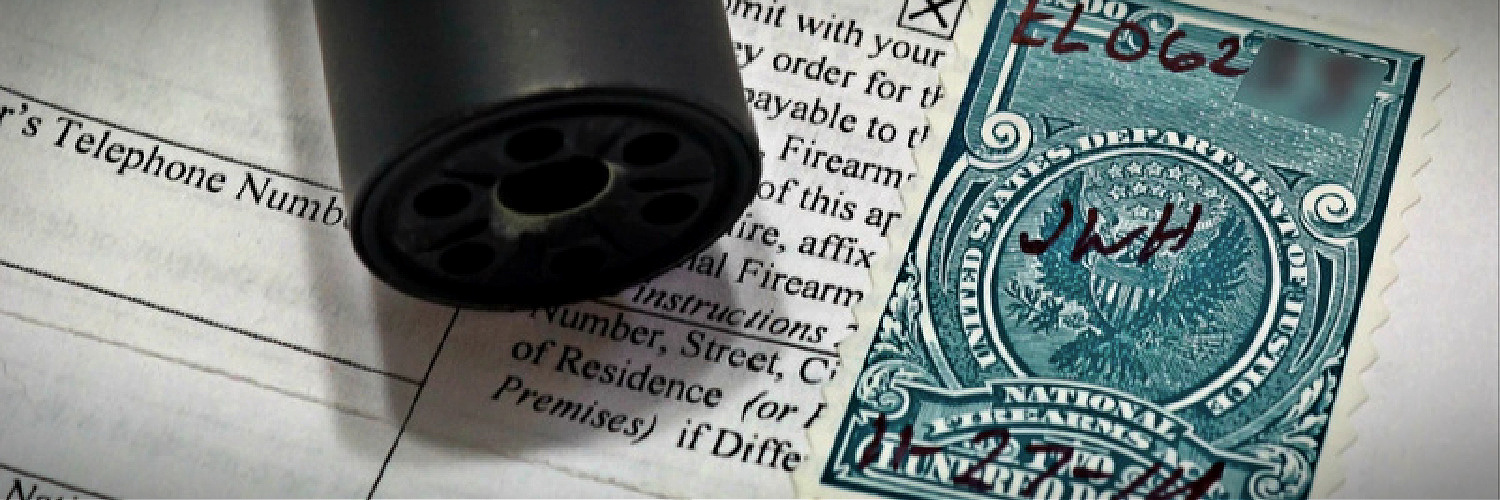
Types of Suppressors
When choosing a suppressor, it’s crucial to understand the different types available and their specific applications.
Dedicated suppressors are tailored for use with a single caliber, providing optimal performance and effective noise reduction for that caliber. In contrast, multi-caliber suppressors offer versatility by accommodating multiple calibers, making them convenient for shooters who use various firearms.
Pistol suppressors are typically smaller and lighter, designed to reduce the noise from handguns, while rifle suppressors are larger, built to manage the higher pressures and noise levels of rifles.
Modular suppressors provide adjustable length and configuration options, allowing users to customize the suppressor to meet different shooting needs and preferences. This adaptability can enhance performance and ease of use, making modular suppressors a popular choice for those seeking flexibility in their shooting experience.
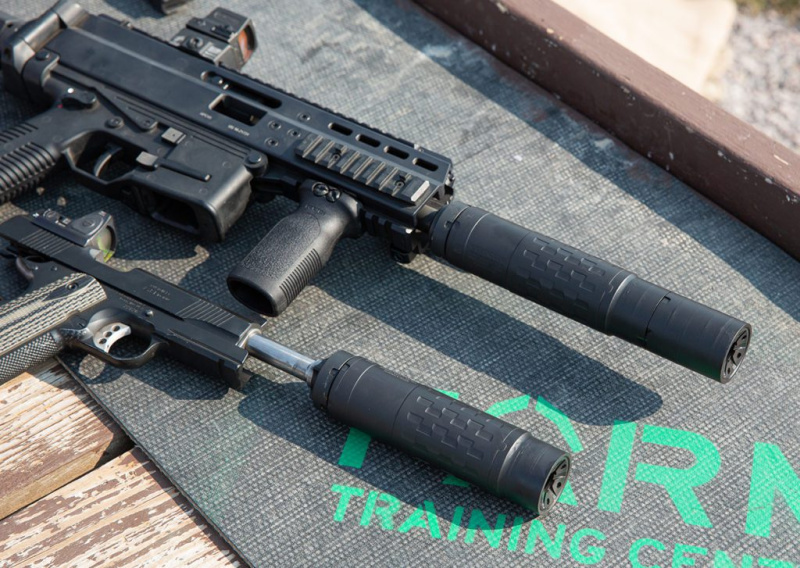
Choosing the Right Suppressor
Selecting the right suppressor involves evaluating several key factors and your choice should reflect your intended use. For hunting, a suppressor can help you remain stealthy and communicate effectively with others in the field, while home defense suppressors should be compact and quick to deploy, minimizing noise and preserving hearing. For range shooting, focus on models that provide excellent sound suppression and durability.
When choosing a suppressor, consider these features:
- Caliber Compatibility: Ensure it fits your firearm’s caliber.
- Overall Weight: Choose a weight that balances comfort and functionality.
- Length and Modular Design: Determine if a standard length or modular design suits your needs.
- Construction Materials: Look for high-quality construction materials that can withstand the rigors of use.
- User-Serviceable vs. Manufacturer-Service Only: Both have their benefits; choose based on convenience and maintenance preferences.
- External Shape and Dimensions: Ensure it fits your firearm and handling preferences.
- Attachment Compatibility: Verify the mounting system is compatible with your gun.
- Tools Required: Consider what tools are needed for use and maintenance.
Additionally, decide if you need a multi-caliber suppressor for versatility across different firearms or if you prefer a dedicated suppressor for each specific gun. SilencerCo offers a range of models to meet these needs, known for their durability and high performance.
Suppressors are highly effective at protecting hearing by reducing the noise of gunfire, especially when paired with subsonic ammunition for even greater sound reduction. This benefit extends to those around you, enhancing communication and minimizing the auditory footprint in shooting areas.
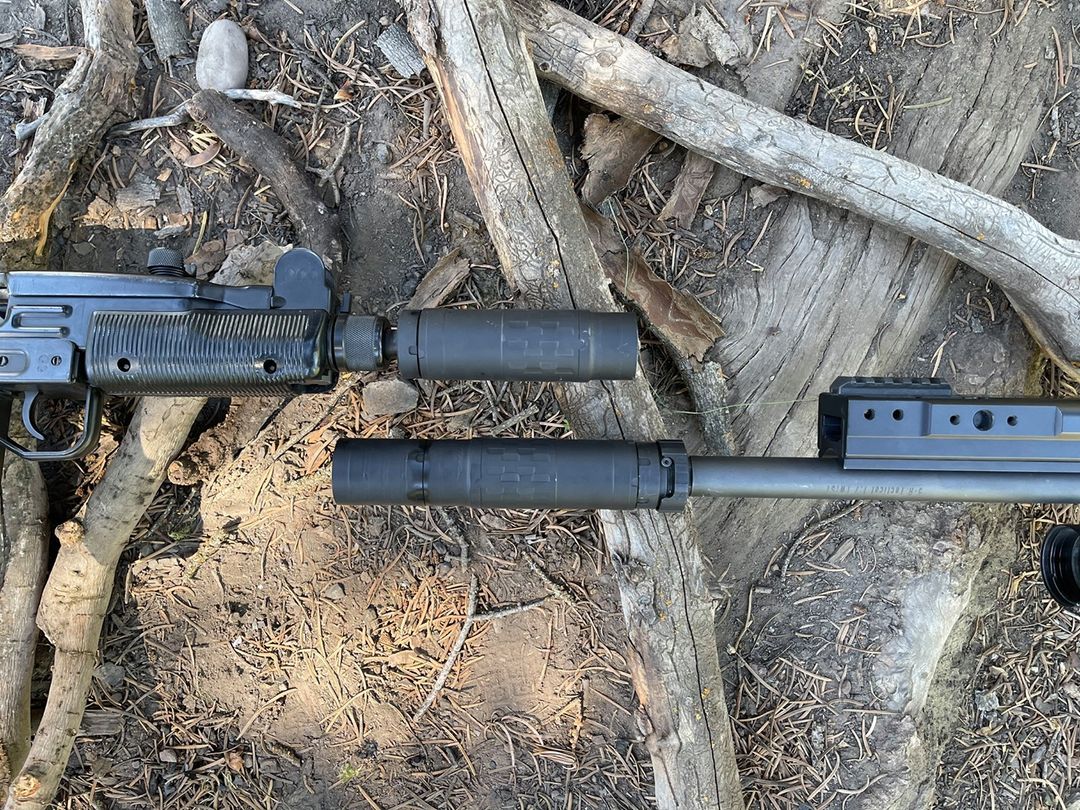
Choosing the right suppressor also depends on your specific needs — whether it’s for range time with a favorite pistol, long-range shooting with a big-bore rifle, or hunting in rugged terrain. SilencerCo offers a range of suppressors suited to various applications, so it’s worth exploring the models available on their website. For example:
- The SilencerCo Osprey 9 provides superior sound suppression for 9x19mm Parabellum pistols.
- The SilencerCo Velos LBP 762 reduces blowback and enhances sound suppression for rifles chambered from 5.56 NATO to 300 Win Mag.
- The SilencerCo Scythe Ti is an ultralight, compact suppressor compatible with calibers ranging from 5.56 NATO to 300 RUM.
- The SilencerCo Salvo 12 is a dedicated suppressor for 12-gauge shotguns, with options to configure it in four different lengths.
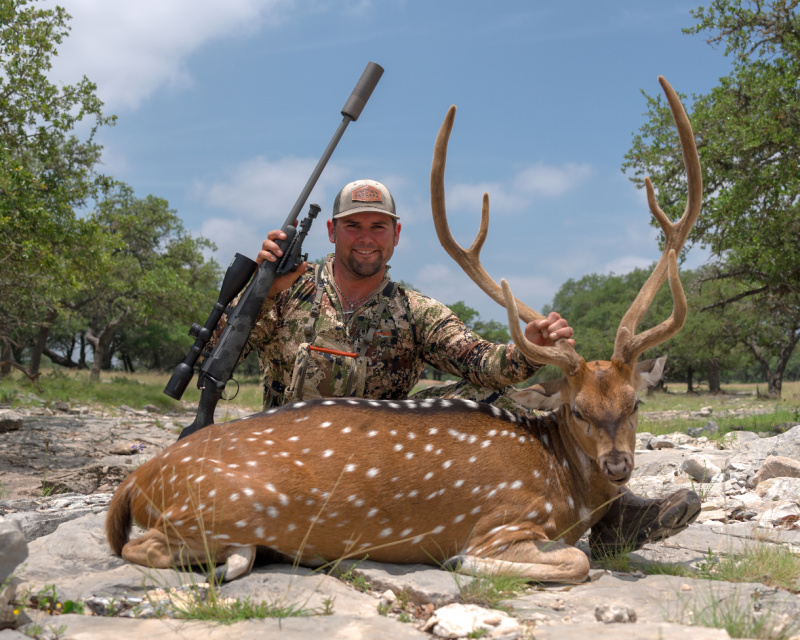
Benefits of Using a Suppressor
Hearing Protection: One of the primary benefits of using a suppressor is its ability to protect your hearing. Suppressors reduce the decibels produced during live fire, which can significantly lessen the risk of hearing damage. When combined with subsonic ammunition, which is designed to travel slower than the speed of sound, you can achieve even greater sound suppression. This not only safeguards your hearing but also the hearing of those around you.
Reduced Recoil: Suppressors can also help reduce recoil, making shooting more comfortable and manageable. This can improve accuracy and overall shooting experience, especially during extended shooting sessions or while practicing.
Improved Shooting Comfort and Communication: Suppressors enhance the learning experience by allowing shooters to communicate more effectively. They make it easier to speak and be heard without shouting, which is particularly beneficial during training sessions or when hunting.
In the woods, suppressors help hunters communicate more clearly and hear ambient sounds better. Additionally, by reducing the auditory footprint of your shots, suppressors minimize disturbance in the shooting area, which can be advantageous for both hunting and tactical operations.
Common Myths and Misconceptions About Suppressors
Despite their growing popularity, suppressors are often surrounded by myths and misconceptions that can lead to confusion. Let’s clear up a few of them.
One common myth is that suppressors make guns completely silent. In reality, they only reduce the noise produced during firing, making it quieter but not silent. Another misconception is that suppressors are illegal or linked to criminal activity. In fact, they are legal in many areas and are mainly used for hearing protection and enhanced shooting comfort.
It’s also important to note that suppressors do not negatively impact a firearm’s performance or accuracy. On the contrary, they can improve accuracy by reducing recoil and noise. Additionally, while some believe suppressors are only for stealth, they actually provide benefits such as hearing protection, better communication, and reduced noise pollution, making them useful in various shooting environments, from training ranges to hunting grounds.
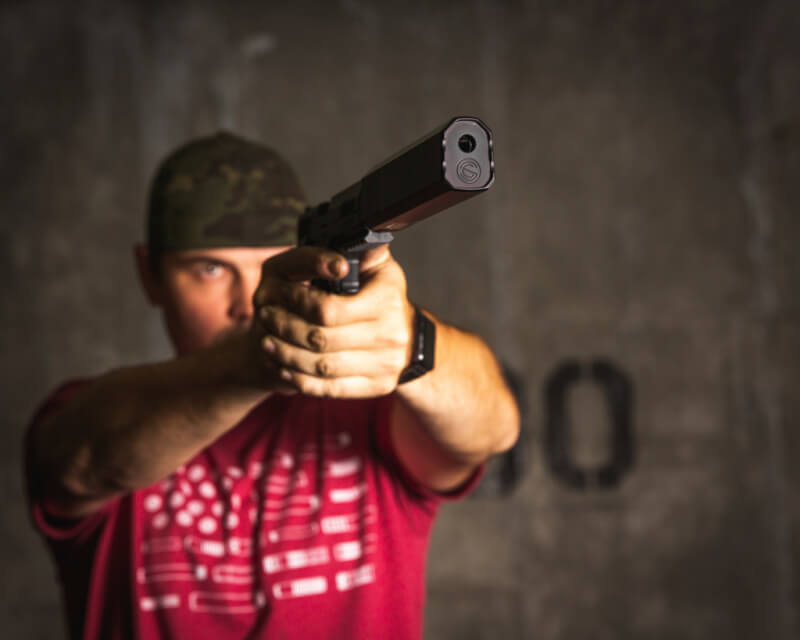
Practical Tips for First-Time Suppressor Owners
Budget Considerations: When purchasing a suppressor, it’s important to set a realistic budget. Suppressors come in a range of prices, influenced by factors such as brand, materials, and design. While it might be tempting to opt for a cheaper model, investing in a quality suppressor can offer better performance and durability. Additionally, consider the costs associated with ongoing maintenance and any required accessories.
Choosing a Reputable Dealer: Selecting a reputable dealer is crucial for a smooth purchasing experience. Look for dealers with positive reviews and a solid reputation for customer service. A knowledgeable dealer can provide valuable advice, help you choose the right suppressor for your needs, and ensure that you’re purchasing a product that meets all legal requirements.
Importance of Proper Documentation and Record-Keeping: Proper documentation and record-keeping are essential when buying a suppressor. Ensure that all required forms are accurately filled out and submitted. Keeping organized records of your purchase, including receipts and approvals, is important for legal compliance and future reference.
Resources for Further Information
To deepen your understanding of suppressors, start by exploring reputable websites. Certainly check out the range of models and detailed information throughout the SilencerCo website, as well as the informative articles in the Learning Center.
Other valuable resources include the American Suppressor Association and the Bureau of Alcohol, Tobacco, and Firearms.
Suppressors are valuable tools, and our goal at SilencerCo is to help you become an educated and confident suppressor owner.


